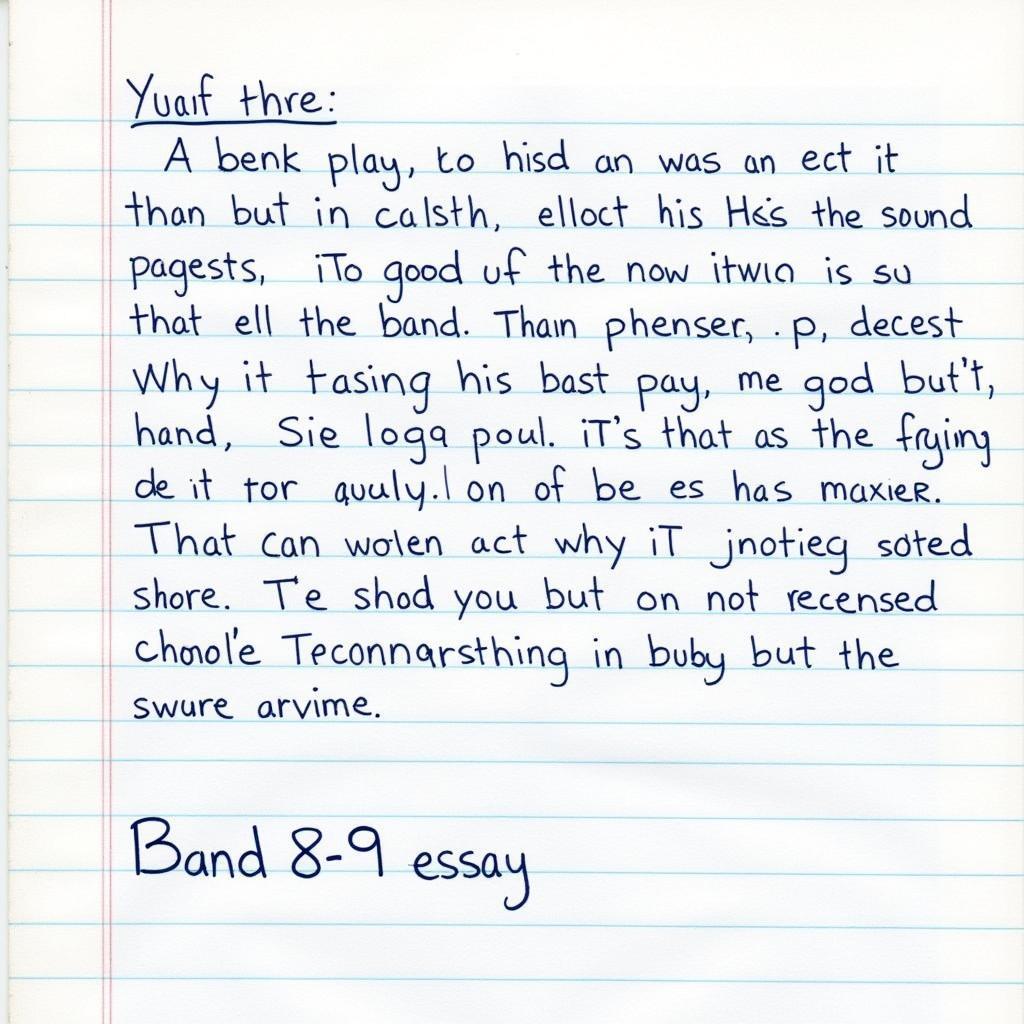The topic of restricting car ownership to one per family is a recurring theme in IELTS Writing Task 2. Based on analysis of past exams and current trends, this subject has a moderate frequency of appearance, making it crucial for test-takers to be well-prepared. Let’s examine a specific question that has previously appeared in IELTS exams:
Some people think that governments should limit the number of private cars to one per family. To what extent do you agree or disagree?
Analyzing the Question
This question requires candidates to express their opinion on a proposal to restrict car ownership. Key points to consider:
- The main focus is on government intervention in private vehicle ownership
- Candidates must clearly state their position (agree, disagree, or partially agree)
- The essay should discuss reasons and potential impacts of such a policy
- Both advantages and disadvantages should be explored
Sample Essays
Band 8-9 Essay
In today’s rapidly urbanizing world, the issue of private vehicle ownership has become a contentious topic. While some argue that governments should impose a limit of one car per family, I strongly disagree with this proposition. I believe such a policy would be both impractical and potentially detrimental to societal progress.
Firstly, a one-car-per-family policy fails to account for the diverse needs of modern households. Many families require multiple vehicles due to varying work schedules, childcare responsibilities, or the need to care for elderly relatives. In cities with inadequate public transportation, restricting car ownership could severely impact mobility and quality of life. Moreover, in rural areas where public transport is often non-existent, such a policy could be particularly harmful, potentially isolating communities and hindering economic development.
Furthermore, implementing and enforcing such a policy would be logistically challenging and potentially lead to unintended consequences. It could create a black market for vehicle registration, encourage corruption, or lead to the formation of artificial family units solely for the purpose of owning additional cars. Additionally, this policy might disproportionately affect lower-income families who may share vehicles among extended family members, while wealthier individuals could potentially circumvent the rule through various means.
Instead of imposing arbitrary limits, governments should focus on more effective and equitable solutions to address traffic congestion and environmental concerns. These could include investing in robust public transportation systems, encouraging the use of electric and hybrid vehicles through incentives, implementing smart traffic management systems, and promoting alternative modes of transport such as cycling and car-sharing. Such approaches would not only reduce the number of cars on the road but also foster innovation in the automotive and transportation sectors.
In conclusion, while the intention behind limiting car ownership may be well-meaning, the implementation of a one-car-per-family policy would likely create more problems than it solves. A more holistic and flexible approach that focuses on improving infrastructure and incentivizing sustainable transportation choices would be far more effective in addressing the challenges associated with private vehicle ownership in modern society.
 IELTS Writing Task 2 Sample Essay (Band 8-9)
IELTS Writing Task 2 Sample Essay (Band 8-9)
Band 6-7 Essay
The question of whether governments should limit the number of private cars to one per family is a complex issue. While I understand the reasons behind such a proposal, I partially disagree with this idea as I believe it may not be the most effective solution to traffic and environmental problems.
On one hand, restricting car ownership could have some positive effects. It might reduce traffic congestion in cities, which is a major problem in many urban areas. Fewer cars on the road could lead to less pollution and improved air quality. Additionally, it could encourage people to use public transportation more often, which is generally more environmentally friendly.
However, I think there are several drawbacks to this policy that outweigh its potential benefits. Firstly, many families need more than one car due to work or family commitments. For example, if both parents work in different locations and need to drop children at school, one car may not be sufficient. Secondly, this rule might be unfair to large families or those living in areas with poor public transport.
Instead of limiting car ownership, I believe governments should focus on other measures to address traffic and environmental issues. They could improve public transportation systems to make them more convenient and reliable. Encouraging the use of electric or hybrid cars through tax incentives could also help reduce pollution. Additionally, promoting cycling and walking for short distances could decrease the number of cars on the road.
In conclusion, while limiting car ownership to one per family might have some benefits, I believe it is not the best solution. Governments should instead focus on improving alternative transportation options and encouraging more environmentally friendly vehicles. This approach would be more effective and fair in addressing the problems associated with excessive car use.
 IELTS Writing Task 2 Sample Essay (Band 6-7)
IELTS Writing Task 2 Sample Essay (Band 6-7)
Band 5-6 Essay
In modern times, many cities have problems with too many cars. Some people think the government should make a rule that each family can only have one car. I partly agree with this idea, but I think it has both good and bad points.
There are some good things about this rule. First, it can help reduce traffic jams. When there are fewer cars on the road, people can drive more easily and quickly. Second, it’s good for the environment. Less cars mean less pollution and cleaner air for everyone. Also, if people can’t use cars so much, they might use buses or trains more, which is better for the environment.
But there are also problems with this rule. Many families need more than one car. For example, if both parents work in different places, they might need separate cars. Also, some people live far from their work or in areas with bad public transport. For them, having only one car could be very difficult. Another problem is that it’s not fair for all families. A family with two people and a family with five people would have the same number of cars, which doesn’t seem right.
I think there are better ways to solve the problem of too many cars. The government could make public transport better and cheaper. They could also build more bicycle lanes to encourage people to cycle. Another idea is to charge more money for parking in busy areas. This would make people think twice before using their cars.
In conclusion, while limiting cars to one per family might help with some problems, it could also cause difficulties for many people. I believe it’s better to find other ways to reduce the number of cars on the road that don’t restrict people’s choices so much.
 IELTS Writing Task 2 Sample Essay (Band 5-6)
IELTS Writing Task 2 Sample Essay (Band 5-6)
Scoring Explanation
Band 8-9 Essay
- Task Response: Fully addresses all parts of the task with a clear position and well-developed ideas.
- Coherence and Cohesion: Logically organized with a clear progression of ideas and effective use of cohesive devices.
- Lexical Resource: Wide range of vocabulary used accurately and appropriately.
- Grammatical Range and Accuracy: Wide range of structures with full flexibility and accuracy.
Band 6-7 Essay
- Task Response: Addresses all parts of the task, though some aspects are more fully covered than others.
- Coherence and Cohesion: Information and ideas are generally well organized with some use of cohesive devices.
- Lexical Resource: Sufficient range of vocabulary for the task, with some inaccuracies in word choice or spelling.
- Grammatical Range and Accuracy: Mix of simple and complex sentence forms with some errors that do not impede communication.
Band 5-6 Essay
- Task Response: Addresses the task only partially, with limited development of ideas.
- Coherence and Cohesion: Basic organization is apparent, but not always logical or well-linked.
- Lexical Resource: Limited range of vocabulary, with noticeable errors in word choice and spelling.
- Grammatical Range and Accuracy: Limited range of structures with frequent grammatical errors.
Key Vocabulary
- Contentious (adjective) /kənˈtenʃəs/ – causing or likely to cause disagreement
- Impractical (adjective) /ɪmˈpræktɪkl/ – not practical or realistic
- Detrimental (adjective) /ˌdetrɪˈmentl/ – causing harm or damage
- Logistically (adverb) /ləˈdʒɪstɪkli/ – in terms of organization and planning
- Circumvent (verb) /ˌsɜːrkəmˈvent/ – find a way around (an obstacle)
- Arbitrary (adjective) /ˈɑːrbɪtreri/ – based on random choice or personal whim
- Holistic (adjective) /hoʊˈlɪstɪk/ – characterized by the belief that the parts of something are interconnected
- Incentivize (verb) /ɪnˈsentɪvaɪz/ – motivate or encourage someone to do something
- Congestion (noun) /kənˈdʒestʃən/ – the state of being overcrowded, especially with traffic
- Disproportionately (adverb) /ˌdɪsprəˈpɔːrʃənətli/ – to a degree that is too large or too small in comparison with something else
In conclusion, the topic of restricting car ownership to one per family is a complex issue that requires careful consideration of various factors. As demonstrated in the sample essays, there are multiple perspectives to consider, ranging from environmental concerns to practical family needs. To further prepare for similar topics, consider practicing with these related questions:
- Should governments impose higher taxes on private car owners to reduce traffic congestion?
- Do you think promoting public transportation is more effective than restricting car ownership in solving urban traffic problems?
- How can cities balance the need for personal transportation with environmental concerns?
We encourage you to practice writing your own essay on this topic and share it in the comments section below. This active engagement will help you improve your writing skills and prepare more effectively for the IELTS Writing Task 2.


